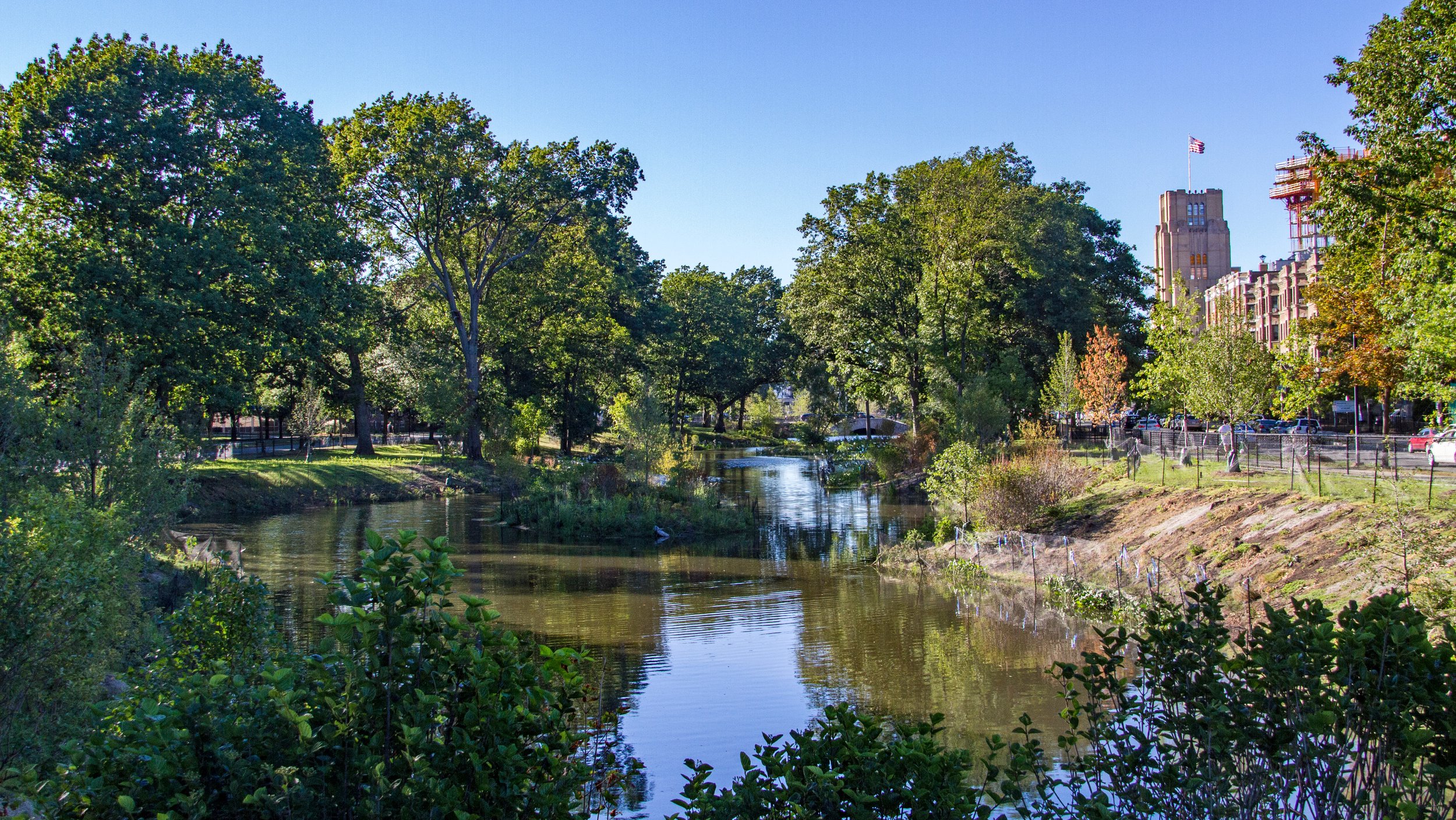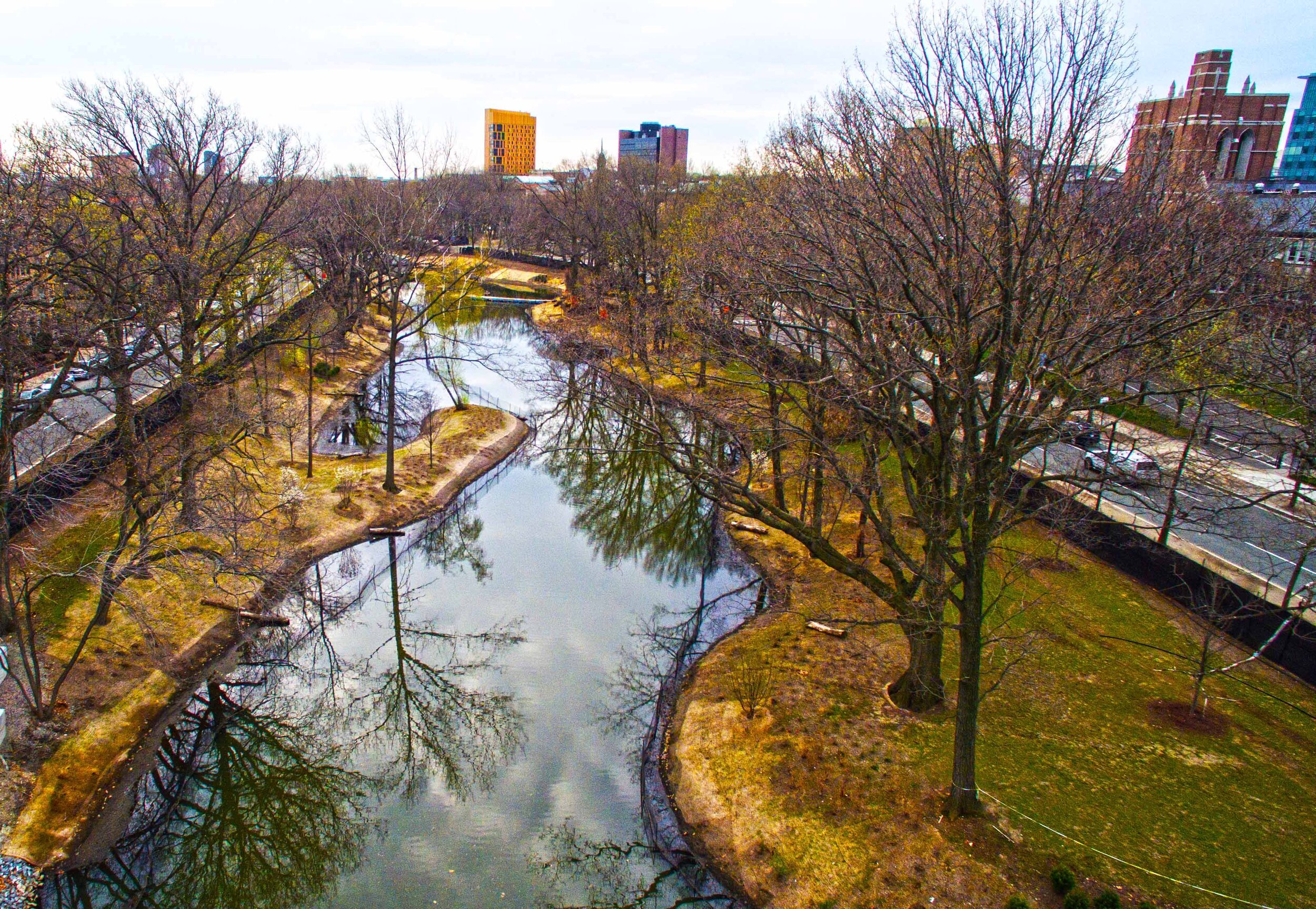
Nature-Based Solutions Case Studies
The Massachusetts Ecosystem Climate Adaptation Network Nature-Based Solutions Work Group has compiled the first in a growing series of case studies that showcase projects that advance nature based solutions in cities and towns across the region. These vary from conserving natural landscapes and restoring or enhancing ecosystems to increasing the natural elements within the built environment.
Each case study identifies the hazards addressed, cost, location, scale, partners, and funding sources, along with providing an interview with partners involved, references, and additional resources.
Check them out below! Learn more + share your ideas for further case studies.
Thanks to Mass ECAN for leading this effort! The first case studies have been funded by the Southeast New England Program (SNEP) and by BSLA.
The case studies:
-

Green Infrastructure & Climate Resiliency Policy
Deerfield, a town in Franklin County with a population of 5,042, has recently enacted a Green Infrastructure and Climate Resiliency Policy that will serve as a model for surrounding municipalities. The town’s goals for this policy are to promote climate resiliency across public and private development through the adoption of green infrastructure and a shift to more sustainable, renewable practices. Funding assistance to develop this policy was received in 2019 through a Municipal Vulnerability Preparedness (MVP) Program Action Grant from the Massachusetts Executive Office of Energy and Environmental Affairs.
-

Green Roofs on Fairmount Line Bus Shelters
In the summer of 2014, three bus shelters along the Fairmount/Indigo Commuter Rail line, near Talbot Station, were retrofitted with green roofs. The roofs help to improve air quality and carbon sequestration, reduce and filter stormwater runoff, and cool urban heat islands. In addition to the ecological benefits, the project also trained and employed local youth through YouthBuild Boston and the TNT Eco-Teens Programs. Although the project only remained up for two years before the grant funding expired, Trevor Smith (Land Escapes Design, Inc.) believes there is huge potential with this and similar projects in the future.
-

Cold Brook Restoration Project
In Harwich, the 66-acre Robert F. Smith Cold Brook Reserve is undergoing ecological restoration work through a partnership with the Harwich Conservation Trust (HCT), Town of Harwich, Massachusetts Division of Ecological Restoration (DER), and U.S. Fish & Wildlife Service. Once a productive cranberry farm, this site has since ceased production. The goal of the Cold Brook Restoration Project is to return this retired bog to a more ecologically resilient trajectory by addressing over 100 years of site stressors from its rich agricultural history. As more Massachusetts cranberry farms retire due to a variety of factors, new opportunities have arisen for these historically farmed lands to restore their natural roots and adapt to climate change.
-

Apple Country
The Apple Country Natural Climate Solutions Project (ACNCSP) encompasses three municipalities – the Town of Bolton (Bolton), the Devens Regional Enterprise Zone (Devens), and the Town of Harvard (Harvard) – regionally known as Apple Country. The collaboration serves to enhance Apple Country’s climate resilience by identifying healthy ecosystems to conserve in the region, and identifying locations that are ripe for ecological services restoration and management.
-

Malden River Works
The Malden River Works project sought to develop a climate resilient public park by looking at how cities can prepare for climate change with input and leadership from a diverse cross-section of the community. The project proposes several green infrastructure and nature-based solutions behind the City’s existing Department of Public Works Building. This includes an elevated, climate and flood resilient greenway, restored riparian ecosystem, permeable paving in the parking lot, and planting about 80 native trees and plants. This project involved numerous partnerships among local organizations and city governments, and created a model for supporting a paid Steering Committee.
These case studies are only the beginning…
More case studies are in the works, and we welcome your projects too.
The goal is to create a robust collection of built examples to help advance NBS work in the Commonwealth and New England.
Mass ECAN is a community of practice for climate adaptation practitioners and researchers interested in ecosystem resilience and natural resource conservation in Massachusetts.
BSLA is part of this community. Individuals and organizations, it’s free to get involved. Please join us!

